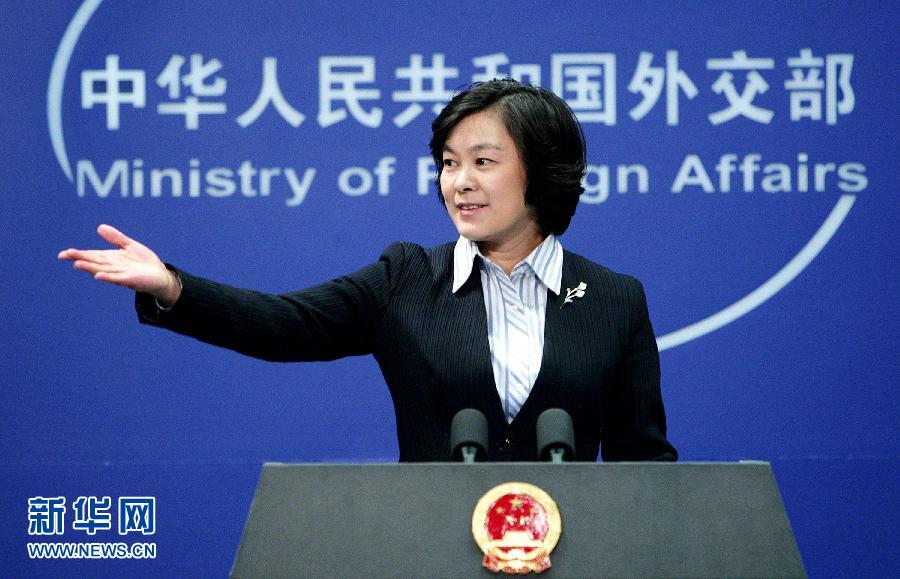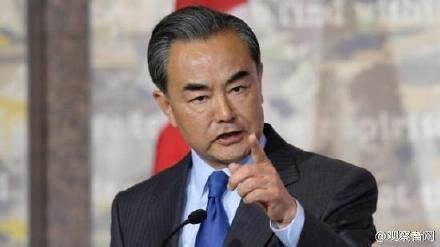The Best China (XIV)
In The Best China we introduced readers to essays, literary works and art produced in Hong Kong. The veteran journalist Lee Yee 李怡 (李秉堯) was the founding editor of The Seventies Monthly 七十年代月刊 (later renamed The Nineties Monthly). He has been a prominent commentator on Chinese, Hong Kong and Taiwan politics, as well as the global scene, for over forty-five years. His position has gone from that of being a sympathetic interlocutor with the People’s Republic in the late 1970s to that of outspoken rebel and man of conscience from the early 1980s. For decades Lee has analysed Hong Kong politics and society with a clarity of vision, and in a clarion voice, rare among the territory’s writers. The essays by Lee Yee translated in ‘The Best China’ are from ‘Ways of the World’ 世道人生, the regular column he writes for Apple Daily 蘋果日報.
— Geremie R. Barmé
Editor, China Heritage
9 October 2018
Speaking for the State
外交部發言人
Lee Yee 李怡
Translated by Geremie R. Barmé
On 4 October, Mike Pence, the Vice-President of the United States, made a thirty minute speech on US China policy. His remarks will have a crucial impact on the US-Sino relationship, as well on China’s own economic stance, the strategic environment of Asia and the Pacific, and relations with Taiwan. The evolving situation will also influence China’s policy regarding Hong Kong. Pence’s speech far outweigh in importance the latest reports about the actor Andy Lau, [the reappearance of the mainland star accused of tax fraud] Fan Bingbing or the November 2018 Kowloon West by-election. 美國副總統彭斯10月4日就美國對華政策發表長達半小時的演說,對今後的美中關係、中國政經路線、整個亞太戰略形勢、台海關係,都有關鍵影響。形勢的改變,也必然影響中國對香港的政策。這新聞與劉德華、范冰冰、九西補選的新聞相比,重要太多了。
The following morning, Hua Chunying, China’s Ministry of Foreign Affairs spokesperson, broke with her usual practice of responding to questions with a few clipped sentences by making a rare lengthy statement. Among other things, she summed up Pence’s speech by saying: ‘This is nothing but speaking on hearsay evidence, confusing right and wrong and creating something out of thin air. The Chinese side is firmly opposed to it.’ [From the official translation — Ed.] But Hua’s statement was itself completely vacuous. Just how had Pence ‘created something out of thin air’? Shouldn’t the Chinese side have provided some concrete examples? 第二天一早,中國外交部發言人華春瑩一反以往「幾句完事」的作風,作出了罕見長篇回應,說彭斯「純屬捕風捉影、混淆是非、無中生有,中方對此堅決反對」。但整篇回應都是空話,怎麼樣「無中生有」?是不是應該說說看?
For instance, in his speech Pence observed: ‘And while China’s leader stood in the Rose Garden of the White House in 2015 and said that his country had “no intention to militarize the South China Sea,” today, Beijing has deployed advanced anti-ship and anti-air missiles atop an archipelago of military bases constructed on artificial islands.’ Now, Ms Hua Chunying: is that true or not? 比如彭斯說,習近平「2015年站在白宮玫瑰園裏說他的國家『無意將南中國海軍事化』,今天,在人工建造的島嶼上的軍事基地裏,北京部署了先進的反艦和防空導彈。」這是否屬實?
Pence also said that: ‘Across the country, authorities are tearing down crosses, burning bibles, and imprisoning believers. And Beijing has now reached a deal with the Vatican that gives the avowedly atheist Communist Party a direct role in appointing Catholic bishops. … And in Xinjiang, the Communist Party has imprisoned as many as one million Muslim Uyghurs in government camps [where they endure around-the-clock brainwashing. Survivors of the camps have described their experiences as a deliberate attempt by Beijing to strangle Uyghur culture and stamp out the Muslim faith].’ In this case as well, is Pence just ‘creating something out of thin air’? 比如彭斯說,中共「在全國各地,拆毀十字架、焚燒聖經、監禁信徒。北京如今還與梵蒂岡達成協議,讓公開宣稱不信神的共產黨在任命天主教主教方面發揮直接作用。……在新疆,共產黨在政府營地內監禁了多達一百萬維吾爾穆斯林。」這又是否無中生有?

Later that same day, China’s Foreign Ministry issued a second statement. This too contained no detailed riposte to the facts that Pence had laid out. It simply declared: ‘Our advice for the US is to buy itself a mirror and take a look at itself [, and spend more time thinking about its own human rights problems, instead of exploiting human rights and religious issues to interfere in China’s internal affairs].’ This is just like some primary school kid who, having been caught breaking the rules, answers back to the teacher: ‘That other kid’s breaking the rules too, why don’t you have a go at them?’ 到晚間中國外交部第二度發聲明,對彭斯提到的所有具體事實陳述,無一回應,只說要「美方好好照照鏡子」。這極像小學生被指犯規時反問:為甚麼另一同學犯規老師又不講?
All of this brought to mind an online mainland internet posting titled ‘Our Neighbour Old Wang Wants to Qualify as a Foreign Affairs Spokesperson’. In it the author outlines how Old Wang demonstrates his suitability for the job to a panel of examiners: 想到大陸網頁一個「隔壁老王報考外交部發言人」的帖子,講老王在面試中的能力展示:
Question: I hear that you beat your wife and child. 考官:聽說你在家打老婆孩子?
Answer: In the past they didn’t even have enough to eat, their lives are much better now. 老王:他們以前連飯都吃不飽,現在生活條件已經改善了很多。
Q: I asked you, do you beat them? 考官:我是問你打過他們嗎?
A: Everyone in the village is witness to the successes that our family has achieved. 老王:我們家的發展成就是全村人有目共睹的。
Q: I’m not asking about any of that. But I am asking you whether you physically abuse your wife and child? 考官:我沒問你那些,我就問你打老婆孩子了嗎?
A: Old Liu beats his family, why aren’t you interrogating him? 老王:老劉家打老婆孩子你怎麼不問?
Q: But I’m asking you. Do you beat your family? 考官:我問的是你,在家打老婆孩子嗎?
A: Has anyone abused people in your family in the past? I’ve heard that an investigation found that over a century ago your great-great grandfather beat his wife. 老王:你們家歷史上有沒有打過?據我調查你太爺爺100多年前打過老婆。
Q: I’m asking you, now: do you physically abuse your family members? 考官:我現在問的是你,打老婆孩子了嗎?
A: In our family rules, which I wrote, there is a stipulation against beating. 老王:我已經把不打老婆孩子寫進了家規。
Q: Do you obey those rules? 考官:那你按照家規去做了嗎?
A: Such rules are only of concern to our family; no outsider has the right to interfere in our internal affairs. 老王:家規是我們家的內政,別人無權干涉。
Q: I demand to know if you abuse your wife and child? 考官:你到底打老婆孩子了嗎?
A: I condemn the physical abuse of wives and children. 老王:我譴責打老婆孩子的行為!
Q: But I’m asking you: do you physically abuse your wife and child? 考官:我就問你打老婆孩子了嗎?
A: Questioning me like this is irresponsible. Have you ever visited my home? I invite you to my home so you can see for yourself. 老王:你提這種問題是不負責任的。你去過我們家嗎?我邀請你去我家作客,親眼看一看。
Q: Yet again, I demand to know, do you beat your wife and child?? 考官:我就問你打老婆孩子了沒??
A: My response is that you are in no position to appreciate the relationship between me and my wife. Only I and my family understand it. I have sole authority to address this subject, not you. 老王:我可以告訴你,最了解我們夫妻關係的人不是你,是我和我的家人。我有發言權,你沒有。
Q: Have you or have you not ever beaten them??? 考官:你到底打沒打過???
A: Your questions betray a deep-seated bias against our family as well as an inexplicable sense of superiority. Our family welcomes all well-intentioned suggestions, but we reject baseless criticisms. Therefore, I demand that you cease this irresponsible line of questioning. 老王:你的這個問題充滿了對我家的偏見和不知道哪來的傲慢,我們家歡迎一切善意的建議,但是拒絕任何無端的指摘!所以請你不要再有這樣不負責任的提問!
The examiners all applaud and collectively declare: 全體考官興奮鼓掌!異口同聲:
You’ve passed! You are a foreign affairs spokesperson. 你通過了!你就是外交部發言人。
This talent is not merely limited to the mouthpieces of the ministry. The Chinese foreign minister [Wang Yi] previously demonstrated the art of high dudgeon when he criticised a journalist during a press conference in Canada. That’s China Logic. 其實不僅是發言人,包括外交部長在加拿大對記者的訓斥,不就是這樣的中國邏輯嗎?
— Lee Yee 李怡, 世道人生:外交部發言人
蘋果日報, 2018年10月8日
***
Editorial Note:
In his concluding lines Lee Yee is referring to incidents such as the following, reported in The Guardian:
China’s foreign minister berated a journalist during a visit to Canada on Wednesday for asking an “irresponsible” question about China’s human rights record.
Wang Yi was in Ottawa to meet prime minister Justin Trudeau and Stéphane Dion, the minister of foreign affairs. At a joint news conference offered by Wang and Dion, Canadian journalists were limited to one question and a follow-up for both ministers.
Reporter Amanda Connolly of online news site IPolitics directed a question to Dion that touched on the case of Canadian Kevin Garratt, detained since 2014 in China on charges of espionage and stealing state secrets.
Connolly said: “There are no shortages of concerns about China’s treatment of human rights advocates such as the Hong Kong booksellers and its detention of the Garratts, not to mention the destabilising effects of its territorial ambitions in the South China Sea.”
She followed up with another question, which had been agreed upon by several news media. “Given these concerns, why is Canada pursuing closer ties with China, how do you plan to use that relationship to improve human rights and security in the region, and did you specifically raise the case of the Garratts during your talks?”
Dion said he had addressed the case with Wang and that the two had had an “honest and frank” conversation on human rights and consular affairs. “We expect that we will not always see eye-to-eye with each other, but we need to make progress,” said Dion.
Wang later weighed in with his own response, telling the reporter, “I have to say that your question is full of prejudice against China and arrogance … I don’t know where that comes from. This is totally unacceptable,” he said through an interpreter.
He continued, visibly angry. “Other people don’t know better than the Chinese people about the human rights condition in China and it is the Chinese people who are in the best situation, in the best position to have a say about China’s human rights situation.”
— Ashifa Kassam and Tom Phillips
Chinese minister vents anger when
Canadian reporter asks about human rights
The Guardian, 2 June 2016


